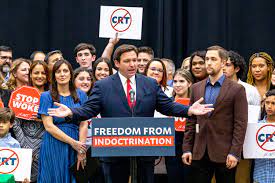My child is bored!
Several years ago, I got into a classroom tangle with one of my 8th grade percussionists. I won’t share the details, but take my word that what he did and said was egregiously defiant, disrespectful to other students–and very public. I called him out for his unacceptable behavior–also in public–and sent him to the office to cool down, something I did fewer than a dozen times in 30 years of classroom practice. Later, I met with him in the office, privately, and we settled on what would happen next. He went on to his next class.
Then I called his mother, who was a high-profile person in our small community, just to let her hear what happened and what the outcomes were. She was appreciative of the call and expressed agreement with my actions. And then she said: Maybe this is my fault for not pulling him out of the band. Lately, he’s been so bored in your class.
I was floored. While this boy may have been a star in some of his classes, he was a middle-of-the-pack performer in the drum section. He was also smart enough to know the music I was dishing off to him was at his challenge level. We were preparing for several fun performances, and he had some key parts to play.
So–why complain to your mom about being bored? What’s that about? How should parents and teachers interpret and deal with charges of being bored in the classroom? Here are eight of my experience-honed, overlapping ideas about student “boredom:”
- Boredom is never an excuse for bad behavior. Being bored doesn’t get you off the hook for rudeness or worse. If you’re bored, see it as an opportunity to figure out why. In addition, bear in mind that many excellent life habits are established through repetition and plodding along.
- Boredom should not be immediately equated with “dumbed down” curriculum and instruction. Applied learning happens in peaks and valleys. Practicing almost anything can feel boring, at times. It’s not “too easy” if it’s not yet automatic. Practice at a lower level–solving single-variable equations, reading a young adult novel, singing with a less-experienced choir, playing soccer with younger players–can also be very pleasurable. As a music teacher, I tried to have music in the folder that was over my students’ heads as well as rip-through-it simple.
- Buying into kids’ boredom as valid reason for disconnecting or misbehaving corresponds to another fallacy: the idea that “good” teachers should make every lesson novel and entertaining to kids. True, there is a strong acting/entertainment factor in dynamic teaching. Great teaching should inspire learning through more than attention-grabbing, however. Reminder: the person who does the–hard, and occasionally monotonous–work of learning is the student. It doesn’t matter how many white-lab-coat chemical explosions they witness, or if their fifth grade teacher dresses up like Amelia Earhart–there is no learning without diligent effort on the part of the child.
- Boredom is not a sign of giftedness. I once honked off a few hundred parents (and teachers) in the Gifted/Talented community by suggesting that if their children were truly gifted they’d be finding ways to amuse themselves in so-called boring classes. (I also suggested some of these might be less than desirable, given personal experience with very bright kids who love to keep things lively.) Boredom and giftedness are two separate things. I do support challenging curriculum and instruction for very capable students–but not because they’re bored.
- “Boredom” should not be used as reason to assert that kids should never have to wait for other children to catch up. Children consistently learning at the wrong level (both too low and too high) will be vulnerable to disengagement, of course. But having to wait until the class has solidified a concept before moving ahead is not a crisis. Cliched but true–education is a journey, not a race. Sometimes, you’re leading the pack. Other times, you aren’t. There are benefits to learning in a cooperative group, the primary one being developing the skill of acceptance and appreciation for the viewpoints and capabilities of other human beings.
- Boredom is merely lack of engagement, a two-way street in terms of responsibility. Are there boring classrooms? Yes. There are boring drills, boring lectures, boring warm-ups–and any number of boring instructional strategies (i.e., worked examples in mathematics) that yield some learning benefits. Daily practice of musical scales isn’t much fun, but it’s an enormously effective technique-builder. Brushing your teeth is boring, too, but that doesn’t mean you should stop.
- Boredom can be cured–by students. I think the most useful thing parents, teachers (and students) can do to prevent genuine boredom is devise individual strategies to extend learning– read a different book, tackle a more challenging solo, ask for harder problems or other enrichments. Anyone who’s ever leafed through a well-used textbook knows that some kids know how to doodle their way to amusement. Tell your kids to own their boredom and fix it.
- Suggestions to mitigate boredom? OK, but be fair to teachers who are coping with an overstuffed curriculum, super-sized classes and the threat of test data being used to judge them as professionals. Many teachers would choose “boring/retain job” over “excitingly creative/scores tank,” unfortunately. One of the most common complaints from veteran teachers these days is having to give up well-polished, sure-fire lesson plans in favor of someone else’s policy conception of what’s most important.
My cocky 8th grade student calmed down and finished the year–as do most kids who make a big deal about how bored they are. We should teach students that boredom, like any problem, can be your friend. Right?



